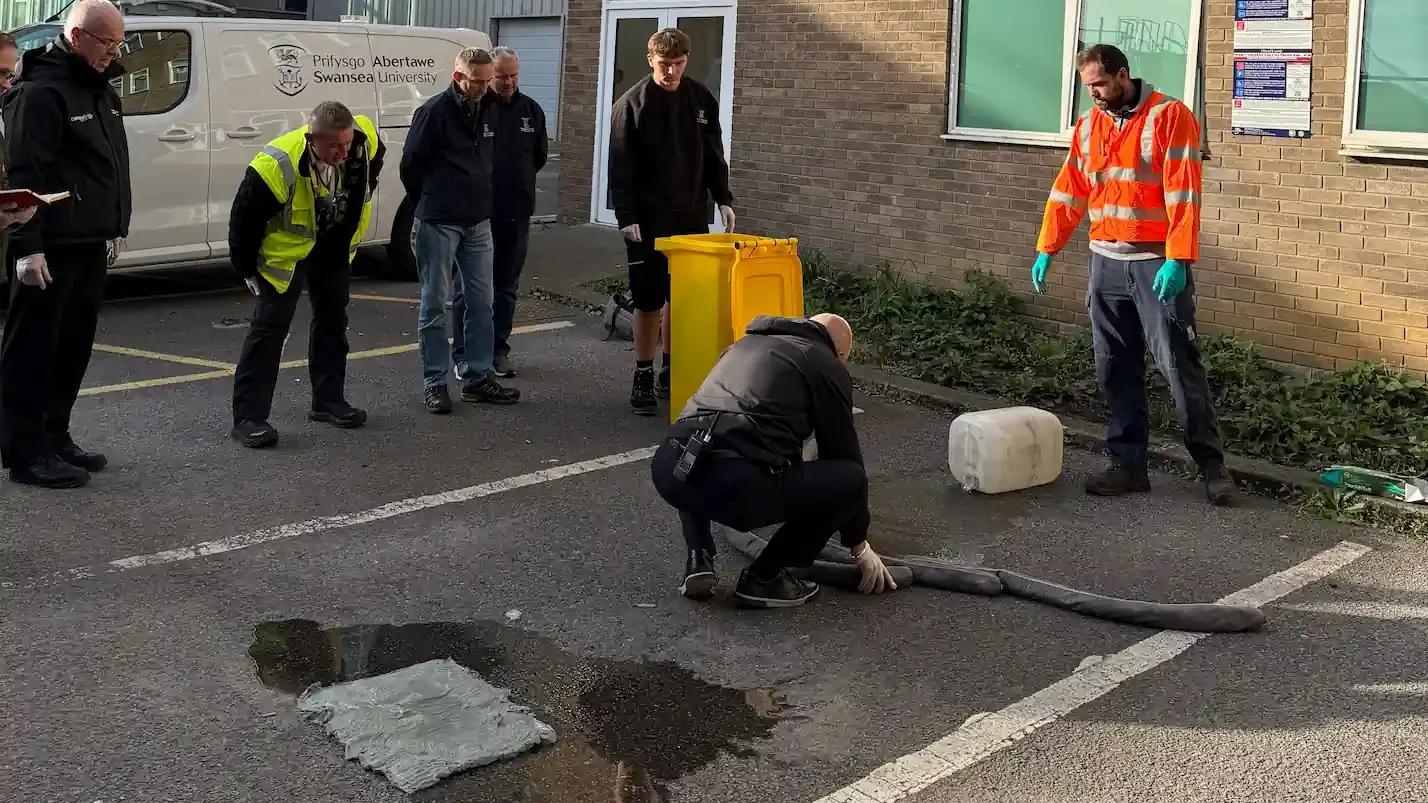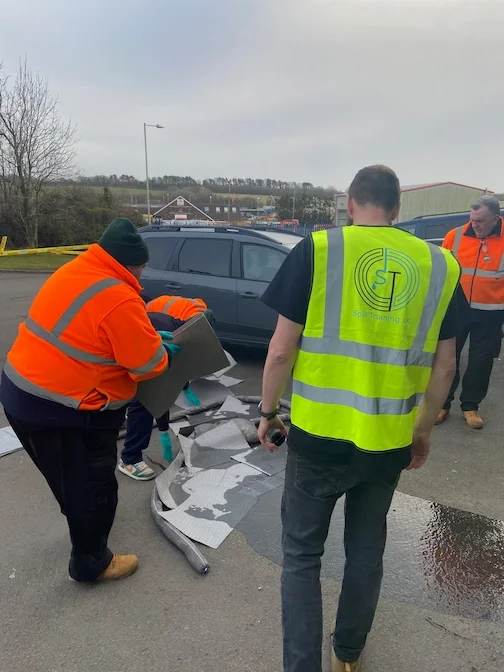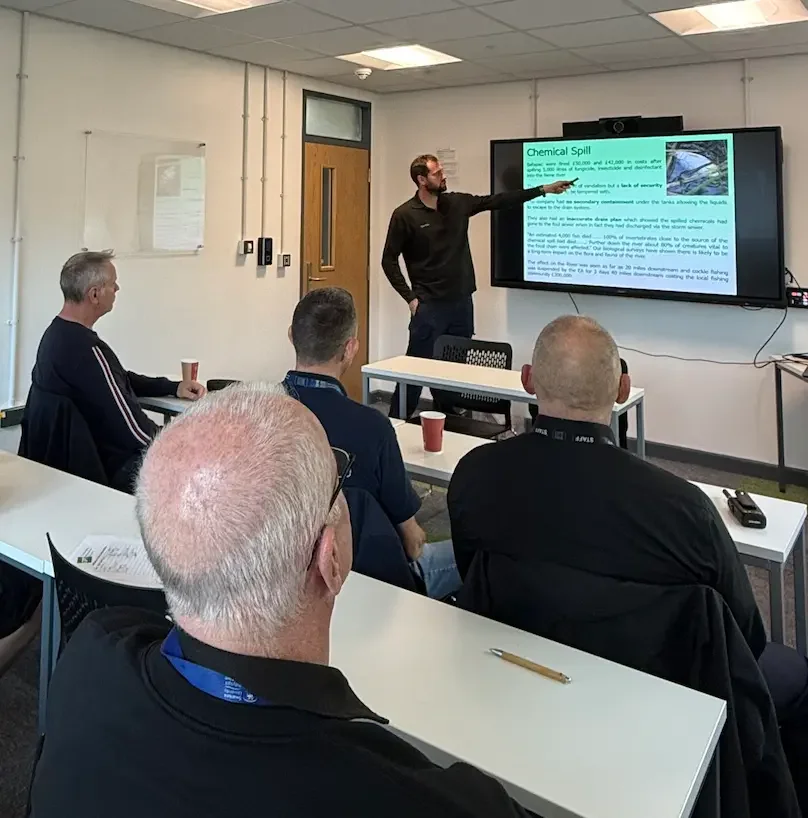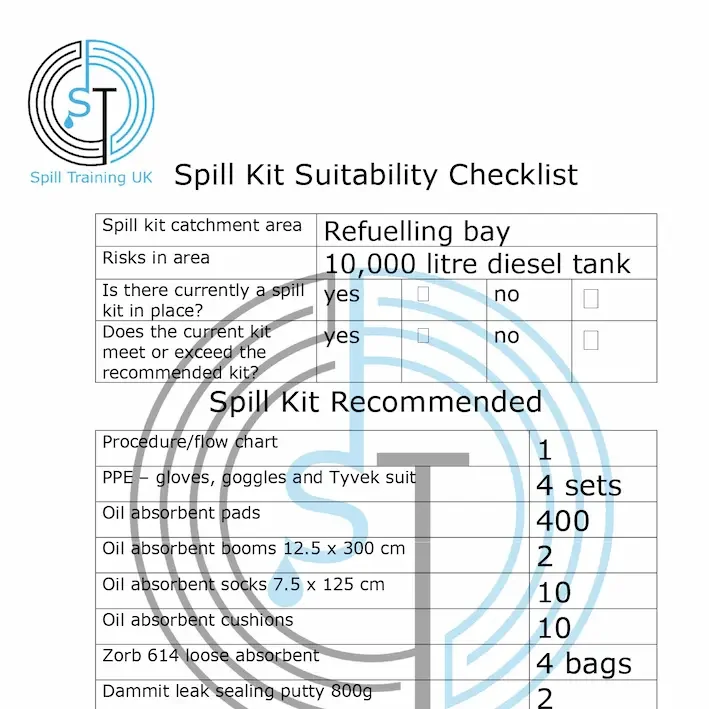ISAS Accredited Spill Training -
tailored to your site specific risks
Our Spill Response Training Services
*From £59 per person
International Spill Accreditation Scheme approved training made bespoke to your site specific risks and control measures.
*From £399 per person
Empower your staff to deliver competent spill response training to their colleagues with a spill Train the Trainer course.
Free Spill Kit Suitability Assessment
*Free with all sessions
With every session ordered we offer an assessment of every spill kit on site to ensure they are sufficient for the catchment area they cover.
About Spill Training UK
Our mission is to ensure as many sites across the UK have in-house competency to deal with spills safely and efficiently.
Every year spills which are not effectively dealt with cause injury to workers and harm our natural resources, killing wildlife and making areas uninhabitable.
By ensuring sites are prepared for spills and that best practice is implemented we can help our clients to reduce spills and ensure any spills which do occur are effectively responded to.
-
Spill Training UK are a completely independent spill training provider. We specialise in spill training and are not owned by a spill product manufacturer or a more general training provider. This allows us to offer a high level of expertise in the area of spill prevention and control, while remaining independent to offer advice and assistance about the best spill control technologies on the market.
-
Spill training can be conducted in house using toolbox talks or on line which usually consists of a short generic PowerPoint presentation which staff read through. Whilst neither of these are the wrong approach they are likely to only give a basic understanding of spill control and are unlikely to mean staff are going to respond competently if a spill does occur.
By using an accredited training provider you can ensure that an independently assessed specialist in the area of spill control is delivering the training. This allows for an interactive course and staff can ask specific questions they would like to know more about.
-
As with most things, you get what you pay for. Online courses typically cost £25-£35 per person for access to a generic spill training presentation which delegates can click through in under an hour. These courses would be suitable for a generic knowledge of spill response but are unlikely to prepare your staff to respond to a spill.
Our training starts from £60 per person, this is a 3 hour course made bespoke to your site and includes a practical demonstration.
Follow us on Linkedin
Contact Us
Interested in working together? Fill out some info and we will be in touch shortly.






